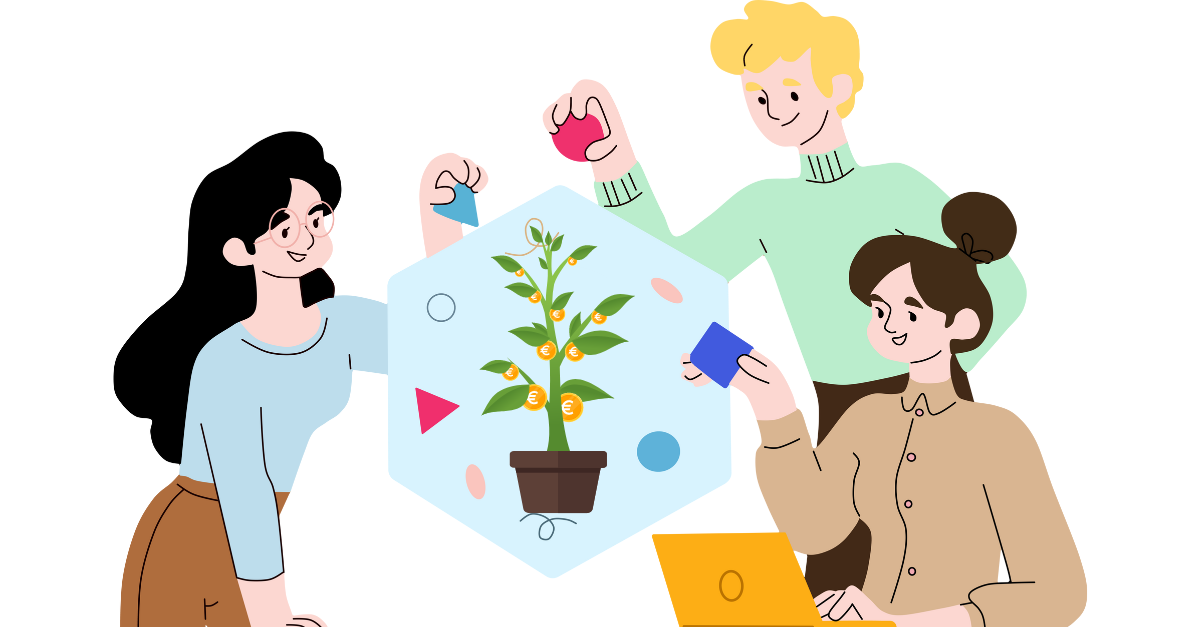
Image created using Canva: Innovating together, Euro tree.
Experts share best practices to educate children, scientists, and everyone in between, aiming to align regional priorities and industry needs.
Forty-one bioeconomy education experts from 18 countries gathered at the BIO2REG workshop to discuss best practices, emphasising the need for engaging diverse stakeholders and providing practical training.
The BIOEAST HUB CZ team, led by George Sakellaris, organised a workshop to compile European bioeconomy education initiatives into practical guides for regional bioeconomy transitions. Key messages from the speakers included the importance of engaging decision-makers and citizens at various levels, enabling regional network exchange, and offering beginner training courses to reach a broader audience. Bioeconomy education focuses on sustainable practices and the use of renewable biological resources, aiming to create a new generation of experts capable of managing the challenges and complexities of the domain.
“Regional priorities, industry needs, and current education offers are still misaligned”, stated Susanna Albertini from the European Bioeconomy Network (EuBioNet). Susanna presented EuBioNet projects that address this mismatch, such as the GenB project, which provides bioeconomy toolkits for children, including educational videos, hands-on labs, and a multilingual book. She emphasised that ready-to-implement packages like these are the most effective bioeconomy education tools for all stakeholders.
A regional perspective was provided by Prof. Dr Ingar Janzik, an education coordinator at the Bioeconomy Science Center (BioSC), Forschungszentrum Jülich. Since its establishment in 2013 by the German state of North Rhine Westphalia, BioSC focused on – among others – educating scientists about the bioeconomy through initiatives like summer schools for doctoral students, excellence awards for student supervision, and funding for interinstitutional mini-projects in bioeconomy. BioSC also facilitates exchange between regional educators, local industry partners, students, and community members.
Continuing the topic of higher education, Bernhard Koch (Centre of Bioeconomy, BOKU University) represented European Bioeconomy University, an alliance of the eight leading European universities. He emphasised the critical need for combining business theory with practical skills for bioeconomy beginners. For example, cultural exchange between students at the Fostering Entrepreneurship for the Bioeconomy (FOEBE) project helped to find parallels between regions and bring out unique features. “Find your co-fighters!” advised Bernhard.
In summarising the workshop, George presented the success story of BIOEAST UNInet, a macroregional network initiated in 2020 to unite Central and Eastern European countries for a knowledge-based bioeconomy transition. During the final session, participants discussed the challenges and gaps in bioeconomy education in their regions, focusing on industrial needs, vocational training, and geographical aspects. “The workshop proceedings will be summarised and shared very soon,” promised Sakellaris.
The practical guides developed from this and other workshops address the unique challenges of regions and leverage identified success factors. We highly encourage you to participate in our upcoming BIO2REG expert workshops, as your contribution is invaluable. Check our Events page for more details.
Funded by the European Union

Views and opinions expressed are however those of the author(s) only and do not necessarily reflect those of the European Union or European Research Executive Agency (REA). Neither the European Union nor REA can be held responsible for them.
